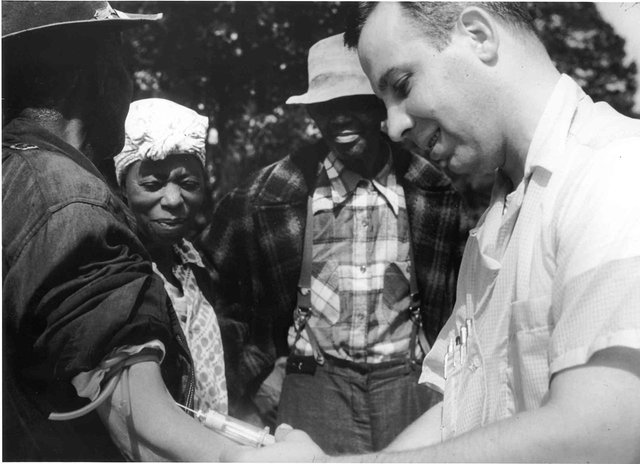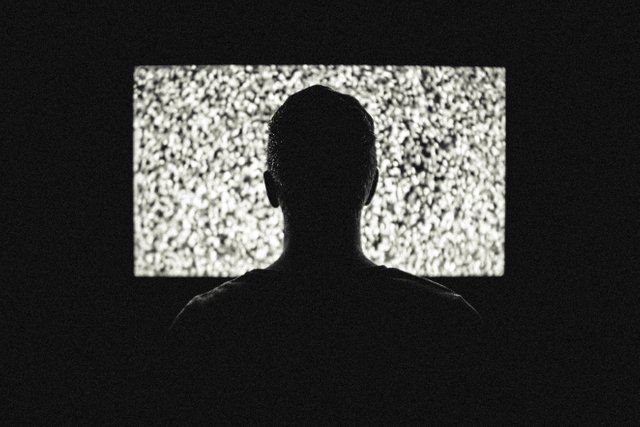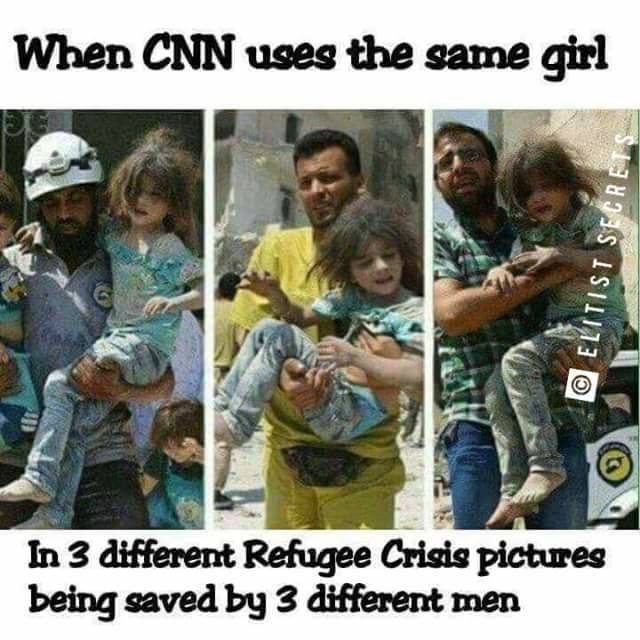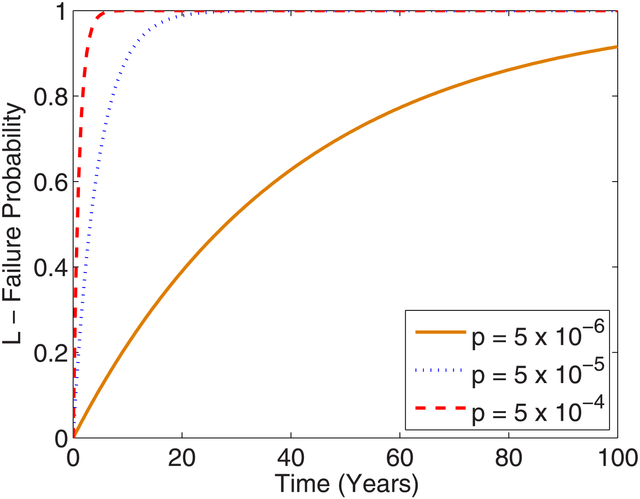Thoughts on Conspiracy Theories - IFC Finals - Second Round

This is my entry for the Information Finding Championship Final: Round 2 run by @apolymask and @ifc. The topic for this round is: Conspiracy Theories.
Opening Ramble and Thoughts
Sigh, when I saw that this was the topic for this round my heart dropped! I'm not one that takes easily to conspiracy theories despite having some friends and colleagues who are more taken by them. Usually where they see intent, I see co-incidence and perverse incentives... or at the more extreme, a lack of proof and the willingness to see a pattern in the noise. Mostly, this is due to my initial training in Science and Mathematics, with the principles of the scientific method and mathematical analysis holding a central part in my thought processes. Unfortunately, people sometimes confuse this for being closed-minded, but if you have experience in the deeper workings of Mathematics and Physics, you would understand that scientists are incredibly open-minded and creative, but the tools and thresholds that they use to lead them to make statements on the reality of the Universe are not commonly well understood outside of their specialised training.
So, over the last few days I have been thinking hard about how to approach this topic. I tried looking at some conspiracy theories, but I just couldn't bring myself to write about them as I couldn't go along with their basic premises... and so writing about a conspiracy theory would have been too false for me and I wouldn't do it justice. Then I thought about writing a piece countering conspiracy theories, but I didn't want to target any specifically as I didn't want to go head to head against someone else's pet theory. I'm not generally keen on confrontation if it isn't necessary, and in this case, publishing a public piece would be definitely unnecessary from my point of view! That is not to say that I don't enjoy talking with others about theories, but in a one-to-one respectable debate rather than a public red-flag to the entire Internet!
So, the two extremes were out... but then I started thinking, there must be a middle ground. In between the most extreme of conspiracy theories (with little factual evidence to back up) and the hard core scientific/rationalist viewpoints. After there are real criminal conspiracies and corruption at work in society, and the process for uncovering them is structures for transparency in governance and the practice of investigative journalism, both of which vary in strength and ability depending on which country they are in!
So my entry is based upon my personal thoughts of Conspiracies and Conspiracy Theories in general, without addressing too specifically any one theory.

What is a Conspiracy Theory?
Conspiracy
a secret plan by a group to do something unlawful or harmful.
Theory
a supposition or a system of ideas intended to explain something, especially one based on general principles independent of the thing to be explained.
Conspiracy Theory
a belief that some covert but influential organization is responsible for an unexplained event.I object a bit to the word "theory" because as a person with a hard science background, the word is used to describe a model of reality that has been rigorously tested and beyond reproach within the the known limits of it's domain. Think of the models of Newton's Theory of Universal Gravitation, the Theory of Quantum Mechanics or the Theory of Special Relativity. In the usage for conspiracies (and also in general use), I would describe them as hypothesis or conjectures... but I fear I'm fighting a lost cause, as the general usage of the word theory is not the one that I understand!
So, it would appear that the principle idea behind something being defined as a conspiracy theory is the firstly secrecy, and then the intent to hide cause from effect. I would argue that concealed intent behind a series of events, rather than the moral judgement of good/evil, is the definition of a "Conspiracy Theory".
With this definition, it is clear that conspiracies do exist, although sometimes, it would be harder to distinguish them against more mundane interpretations such as perverse incentives, collusion, corruption, unforeseen consequences and sheer incompetence.

Incontestable Conspiracies

There are many examples of real conspiracies which have been uncovered by a wealth of incontestable proof, whistle-blowing and investigative journalism and research. I would argue that these conspiracies are held to be incontestable due to the mountain of factual evidence that was uncovered to justify the conspiracy narrative. Prior to the revelations of incontestable and overwhelming evidence, many of these "incontestable" conspiracies would have inhabited the middle space of "conspiracy theories", which to my mind would have made for interesting reading but would have required more research before being "uncontested".
Examples of uncontested conspiracies include: NSA PRISM, Tuskegee syphilis experiment, The Panama Papers and the Federal Bureau of Investigation (FBI) forensic scandal.
In each of the above example cases, there was a systemic failure of secrecy that was essential to the survival of the conspiracy. The consequences of the failure in each example case was the loss of secrecy, however the principal conspirators may not have been found or punished. I would argue that in these cases, there wasn't necessarily a cadre of "principal conspirators", but a combination of well-intentioned unforeseen consequences that resulted in perverse incentives to push the boundaries of what was appropriate.

Perhaps too far?
Likewise, there are many examples of theories that perhaps push hard on the edge of believablility. Many of these are characterised by anecdotal evidence and a narrative that precedes the accumulation of overwhelming evidence. That is not to say that they are NOT true, but I would be of the mind that they would have a significantly lower probability of truth until the time that a greater amount of concrete evidence was uncovered.
Examples of potentially "too far" Conspiracies: Secret Conspiracies at CERN and the LHC, Flat Earth (apologies, I couldn't find the newer video) and Secrets in Antartica.
I would argue that the defining characteristics that undermine the believability of these particular theories are the lack of concrete first-hand documented evidence and the cherry picking of highly limited data points to conform to a narrative. As I will explain later, whilst this doesn't necessarily discount the validity of the idea, it does undermine confidence in the conclusions as it is statistically possible for patterns to be found in random noise.
Where is the middle ground?
Reports that say that something hasn't happened are always interesting to me, because as we know, there are known knowns; there are things we know we know. We also know there are known unknowns; that is to say we know there are some things we do not know. But there are also unknown unknowns – the ones we don't know we don't know. And if one looks throughout the history of our country and other free countries, it is the latter category that tend to be the difficult ones.
Quote from Rumsfeld, Feb 12, 2002
Of course, between the extreme ends of undeniability proven conspiracies and the more audacious attempts to argue an alternative reading of established evidence, is the middle ground of unproven and potentially true conspiracies. Where we individually draw the line of confidence depends highly on our personal tools and thresholds for assessing the "truth" of a particular conjecture. One person's hoax or unbelievable delusion is another person's canonical truth, and these separate judgments can exist in a contested space at the same time due to the differences in assessment of the available evidence.
From here on in, I'm only describing my own processes, thoughts and tools for assessing the viability of conjectures. It is not my place to critique other people's manner of coming to their conclusions, although I do believe that if we set our thresholds for belief too low, we can unfortunately blind ourselves to the REAL, but mundane conspiracies that directly affect our well-being.

Signal in the noise?

"There are three kinds of lies: lies, damned lies, and statistics."
Attributed to Benjamin Disraeli
My main problems with "more extreme" versions of conspiracy theories is the comparative lack of evidence compared to what I normally have had experience with. Normally, in the harder fields of science, we have the incredibly robust tools of statistical analysis to differentiate real signals from the random background noise. Since the greater part of the public's experience of statistics has been with random percentages bandied about to support a particular narrative, it is not surprising that statistics has such a terrible reputation. However, it is the principal tool for science in extracting results from empirical data to falsify or support theories.
The "gold standard" (in physics) of signal recognition stands at around 5 sigma of significance. This results in the interpretation that a particular data signal would have a roughly 1 in 3.5 million chance of occurring in the random background noise if the signal was NOT real. Needless to say, this is a stupendously high bar to clear to determine the reality of a signal, at which point, you are entitled to say that you THINK that the signal is real and warrants further investigation.
For me, this is in stark contrast to some conspiracy theories offering a handful of qualitative (usually not quantitative) of anecdotal linkages that then lead to a fully formed narrative or open-ended questions. This for me is on par with rolling 6 6's with a dice and then concluding that the dice is loaded or fixed, when in fact the probability for that event happening randomly is non-trivial.
This leads me to assign a low confidence level to them, which does not pass judgement on the absolute truthfulness of the theory, only that (in my eyes) the conclusions are not (currently warranted based on the available evidence.
Granted, it is much easier to gather trillions upon trillions of data points in a particle accelerator than it is to gather qualitative information attempting to determine a causual link between seemingly unlinked events.

Weird things happen

"Correlation does not imply causation"
Just because two things are linked (correlated) statistically does not mean one is caused by the other. For examples of this, see this website. Again, this is a part of statistics that has been hi-jacked by people with agendas to push to try and convince others with "pseudo-science", it is easier for people to be led by a narrative after they have been primed with evidence of a statistical correlation.
It is also tied in with the fact that seemingly improbable events happen (coincidence) given enough rolls of the dice. This is due to the confusion of individual probability of an event and the cumulative probability. An example is the lottery, it would be difficult to predict the individual winner of a lottery, however it is relatively likely that SOMEONE would win the lottery. In an extension of the example, it is highly unlikely that a given individual would win a lottery twice in a lifetime (or row), however it is a non-trivial probability that SOMEONE in the world (with many contests and contestants) would win a lottery twice in a lifetime (or row).
So, to tie this back to the topic, sometimes theories are based upon the unlikiness of a certain chain of events happening or the linkage between two or more events. However, for this line of reasoning to hold up, the chain of events would have to occur multiple times (for instance, cloud formation over CERN at the time of LHC operation or multiple independent confirmations of a study result) or testable proof/mechanism of linkage (why and how is the cloud formed) provided.

Projected intent, context and Occam's Razor

Projected intent
Sometimes we attribute meaning to events and people erroneously and without proof of intent, we read things into situations or make first impressions that are based upon nothing more than stereotypes and quick heuristic scan. Sometimes these ideas are correct (which can lead to confirmation bias) but often they are just not based in fact. Take for example, when driving that a car cuts you off, the initial reaction is that is was done on purpose and with intent (which may be correct but is unfounded in proof). However, when the tables are reversed, and you accidentally cut someone else off accidentally (say, a missed turn or momentary inattention), you would refute strenuously the claim of intent.
Context
Often, evidence without context is not useful evidence. An example of this would be a number of the arguments for the Global Warming (Climate Change) Conspiracy, where certain data points are taken out of context to support a pre-established narrative. This also ties into the idea of confirmation bias, whereby data that supports a certain claim is given higher weighting than data that provides a negative (or even null) result. This is something that we all too readily apply to other people, we make judgements based on limited data (like tabloid stories about why people would have a decent mobile phone whilst living on welfare), whilst when the tables are turned, we have a multitude of historical (plausible and reasonable) reasons for any given situation.
Occam's Razor
Occam's Razor is the philosophical idea that the simplest explanation that adequately describes the situation tends to be the right one (it is not a guarantee, due to the possibility imperfect knowledge). This is one of the central pillars of the Enlightenment and the Scientific Revolution, basically it draws a line in the sand as to how complex and complicated theory can be. It is stating that if you can explain a situation in simple terms, then to add a greater more complex interpretation requires additional proof. To do otherwise, would mean that you could invent dragons and goblins at every turn to explain anything.
An example

Apologies to @magicalmoonlight, I was going to use this specific example before I read your post, it is NOT meant as rebuttal to your post!
This is a meme that had circulated widely in the years after the 2016 Aleppo bombing and for me it demonstrates the above ideas. It is a triptych of photos that are purported to be of three different rescue situations that seemingly have the same girl inexplicably being rescued on three different occasions. However, it is possible to research the actual origins of the photos, and it is quite clear that the photos from CNN are of the same rescue (taken on the same day) at the 2016 Aleppo bombing with the child being handed over from rescuer to rescuer before ending up in a van. If the pictures are taken out of context (in the meme) with a leading and loaded statement, it is easy to miss the simpler explanation (Occam's Razor) in favour of one that supports a narrative (projected intent).

Stability of secrecy in conspiracies?

On the Viability of Conspiratorial Beliefs was an interesting foray into the stability of conspiracies. Conspiracies are, by definition, secretive and thus (energetically) unstable structures, the entire conspiracy is undermined by any ONE single point of failure (see above, PRISM et al). This study investigated some revealed conspiracies and then was able to construct an statistical model on the longevity of a secretive conspiracy. In the settings of the model with parameters that were MOST favourable to the longevity of conspiracies, it was found that the probability of failure of secrecy (and thus, collapse of conspiracy) approached unity within a a few decades, given roughly a thousand conspirators. This is only a single study and a single model, but it serves as an example of the inherent (and mathematically testable) instability of a long lasting conspiracy.

Falsifiability

This is another central pillar of the scientific community. For a conjecture to be considered as a model of reality, it must make certain predictions that are both testable and falsifiable. Thus, it must make new predictions that were not covered but existing theories (Occam's Razor) that can be tested and if shown to be false would falsify the conjecture as a valid theory. This idea lies at the heart of every new possible theory candidate.
Unfortunately, many conspiracy theories have this built OUT of them by design. There can be no falsification, no evidence or proof that would be sufficient to disprove the theory and in more extreme examples the lack of proof becomes proof of secrecy, proof of fallibility becomes proof of conspiracy. For me, this is the critical flaw of a conspiracy theory, the lack of a set of circumstances or proof that would render the theory unsustainable.

My personal thoughts on conspiracies

Often, with conspiracies, the term "open-minded" is used a fair bit, with the implication that to not take a theory at face value is "closed-minded". In my interpretation of the scientific and logical process, "open-mindedness" is the idea that you don't rule out a particular theory, however this is NOT identical to the idea that you accept a theory. The special cases of whether a theory or an idea is provably true or false tends to lie in the domain of logic, mathematics and the harder sciences. The great majority of social and political ideas (including conspiracy theories) tend to lie in a grey area of contestability, due to the lack of ability to perform statistically significant research or to provide durable, decicisive and concrete evidence.
However, I would argue that these ideas would have to be subject to a "confidence" assessment, based on incomplete evidence and data, as to the probablility that they would be true or false. We all make these judgments on "confidence" all through our lives, to do otherwise would be naive and we would fall completely for the simplest of lies and deceit. In the case a great majority of stereotypical "conspiracy theories", I would consider the evidence (mostly soft or anecdotal or spurious correlation) to be currently insufficient to personally consider further. In the area of provable conspiracies (with factual documentation, repeated causal links or hard evidence), I would have a much higher level of "confidence" and be much more likely to accept them.
This is not to say that the tenets and ideals of the scientific method are infalliable. The misapplication of statistics has led to a "reproducibility crisis" in the softer fields of science and perverse incentives have affected the publication of papers that confirm/falsify ideas rather than those with null results.
I really think that by assigning too much resources and time into theories that have lower levels of confidence, we are blinding ourselves (to our own detriment) to the mundane and boring scandals, corruption and collusion that play a much larger role in affecting our lives. In addition, these arguments could undermine otherwise legitimate sources and lines of inquiry into conspiracies that have a more concrete factual basis. Again, this is not to say that high-level conspiracies don't exist (see before PRISM and others) but I would argue that a greater wealth of evidence would be required before being able to make such statements with confidence.
I want to stress again, these are only the thought processes that lead me to not accept most of the stereotypical conspiracy theories, and not a comment on what anyone else might think.
This has been a tricky post to write for me, I hope I haven't mis-represented anyone (or myself!). If you have questions or points, please feel free to sound off in the comments and I will do my best to clarify my thoughts!
iv>
The classical music community at #classical-music and Discord. Follow our community accounts @classical-music and @classical-radio. Community Logo by ivan.atman

Join us @steemitbloggers
Animation By @zord189
Upgoats by ryivhnn
Account banner by jimramones

Posted from my blog with SteemPress : http://www.gamerjokerbreadder.com/2018/07/18/thoughts-on-conspiracy-theories-ifc-finals-second-round/




That made very interesting reading. Though quite partial to a good old conspiracy theory and indeed not quite convinced that I'm more than just a simulation;) I must say you make some good arguments and point out quite a few things I hadn't really considered.
Thanks! With respect to the simulation idea, it leads to the question, if you can't tell the difference (and it isn't possible to make a testable prediction) then does it matter one way or the other if it is real or a simulation?
I know there are some ideas that link the blockiness of quantum mechanics to the blockiness of computer storage, this pointing out that this could be proof of simulation. However, I prefer (at the moment, given the current evidence) to see it as proof of blockiness of the universe (or an as yet misunderstood element of a deeper theory of which quantum is an approximation of).
wonderful post from you!... cant believe you are this awesome buddy!
Thanks and thanks for reading!
I shared much of your thought process about how to sincerely approach this topic. But I lacked the analytical and statistical tools you used to intelligently and respectfully discuss why. I enjoyed reading this!
Thanks, it was a tough topic! But I think you also approached it well!
So interesting and well-written, @bengy. Really enjoyed reading!
Thanks! good luck to you!
This is a wonderful post.
For a great example of a very-well-documented active conspiracy that isn't as well known as it should be, I highly recommend the book Merchants of Doubt by Naomi Oreskes and Erik Conway.
Yes, these are the conspiracies that we should be more interested in. Unfortunately, tgere is too much emphasis on free choice and the ability to self research.
Free choice is not the same as informed free choice. And to address the informed part, unfortunately, decades of scientific papers and research, the deep expert understanding of highly specialised fields of science and mathematics is not on equal footing with an interesting narrative spoken with charisma.
Oh gosh, the media one really got to me. I had never thought there were so many "coincidences" until I started browsing the net.
Coincidences happen a lot of you are rolling the dice incredibly often and there is no restriction on correlating events.
This excellent post was included in the latest issue of The Inbox Runneth Over. Stop by when you have a minute and see what else I found along the trail. Your companions here are all interesting in their own way, and your support for this project and especially its occupants would be very much appreciated. Thank you for everything. Have a lovely day!
Yes, I'm finally getting around to posting this comment. Don't ask.
Ha ha, thanks for the feature!
WOW this is a great post and I really enjoyed reading it, I think Many choose to believe Conspiracy theories that fit there way of thinking and they strenghten their views by just visiting sites that will back there line of thinking, I suspect you like me like seeing sites at both end of the spectrum and forming an opinion basd on what you see and what seems believable looking at all sides of the story
Yes, mostly I agree with you, although (I'm not sure you meant to imply it though) I would say that the "two sides" are not often equally weighted arguments. Also, when things exit out of my area of expertise and understanding, I would prefer to trust experts that have had many years of (non-sexy and dreary papers) study into the area.
@bengy Yes your right of course, I prefer real experts opinion over those trying to make headlines or gain followers, but I do like to look at things from various angles before making an opinion
you hit up on a lot of different ideas here, interesting as well. good luck bengy!
Thanks! Good luck to you as well!
@bengy tons and tons of luck to you bengy! well okay not that much, just in case we are rivals :p
This post is on another level for how you have presented this. Clearly I am not a steemit pro yet. At the same time it was a fun read. Really good Job.
Thanks, glad you enjoyed it! I have learnt much from my time here (and more to learn!), when I started, I had never written anything that resembled a blog. My first couple of months were a pretty steep learning curve! I didn't know what markdown was!